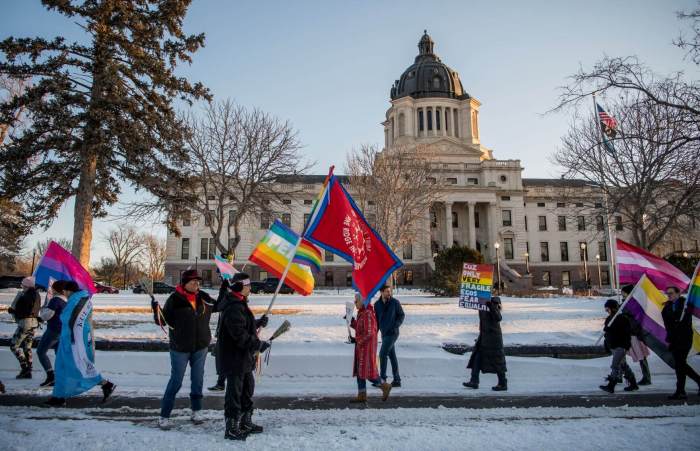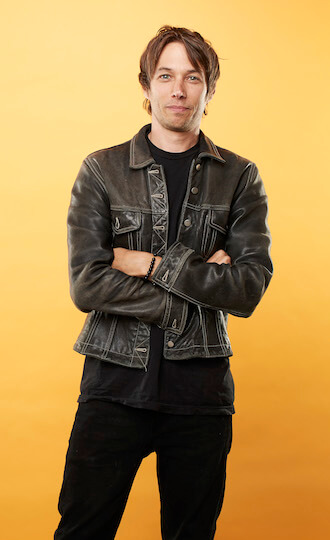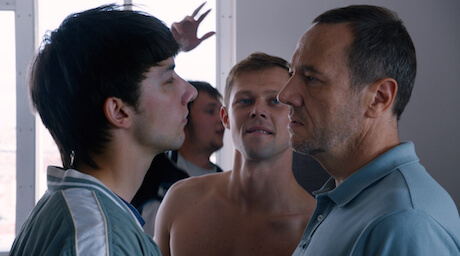Low-cost video technology has always carried the promise of democratizing and demystifying filmmaking. The people who have benefited from it, however, are generally the kind of people who would become directors anyway. This is true in the US, at least. In Nigeria and other parts of Africa, digital video has led to a burgeoning movie industry where filmmaking never existed before. Mumblecore, whatever its aesthetic merit, largely consisted of white guys making films about people like themselves. One refreshing thing about “Tangerine” was that director Sean Baker finally used innovative technology –– the film was shot entirely on an iPhone but looks gorgeous –– to tell the stories of marginalized people.
Digital video has empowered “Songs My Brother Taught Me” director Chloé Zhao, a Chinese-American woman depicting Native American life in South Dakota. Her film harkens back to an earlier time in American independent filmmaking, when John Sayles was hipper than Quentin Tarantino. It respectfully fills in the gaps of an area of American culture most of us know nothing about. The broad strokes –– alcoholism, poverty, clinging to both Native tradition and Christianity –– may be familiar, but the details are new.
The film takes place among the Lakota tribe on the Pine Ridge Indian Reservation, where Johnny (John Reddy) and his 11-year-old sister Jashaun (Jashaun St. John) live with their mother. Johnny tends to behave self-destructively; he has a profitable business selling alcohol, which is illegal on the reservation, but faces danger from competitors. He dreams of escaping to LA. Jashaun doesn’t share his restless urges and feels more at home on the reservation. She hangs out with a tattoo artist and clothing designer, sometimes helping him sell merchandise. Eventually, she’s forced to confront the damage lingering in her family.
Chloé Zhao tells us something new about Native Americans
There are moments in “Songs My Brother Taught Me” that could have come from almost any film about American teenagers. There’s a scene in which a high school teacher talks to his class of graduating seniors about their plans in life –– all of them, including the teacher, happen to be cradling animals. It’s one of the wittiest moments in “Songs My Brother Taught Me,” but it’s also full of pathos, as one knows that the students’ vague dreams will be terribly difficult to fulfill.
The scene where a party gets busted is also familiar, only made new by the illegality of alcohol on the reservation. Despite this, almost everyone seems to either drink heavily or be in recovery. On the way out of the reservation, a carload of people urges, “Say no to alcohol! Embrace sobriety!” Turning alcohol into forbidden fruit seems to actually have made it more tempting for the reservation’s residents. At least they stay away from hard drugs.
Zhao seems to have filmed the badlands of South Dakota in the fall. No snow is visible, but most of the vegetation has turned brown and dry. A chill is obviously in the air. Her film’s long-shot vistas have a nonchalant beauty. The characters don’t seem to care that they live in a gorgeous landscape; to them, it’s just a place they walk through every day, although they enjoy riding horses and participating in rodeos.
The stereotypes Zhao dodges aren’t safely relegated to the past. The Western may be a dead form now, and the idea of the Native American as a threat gone with it. However, Canadian director Dominic Gagnon’s found footage documentary “Of the North,” which played the Museum of the Moving Image’s “First Look” festival in January, shows the dangers in thinking you’re too hip to be a racist. Taking YouTube clips of Inuit Americans and Canadians, most of them unflattering, he made something that looks like a “Jackass” episode at best and is actively insulting at worst, as when he plays a rap song called “Don’t Call Me an Eskimo” over footage of a kid in a fat suit awkwardly dancing.
Gagnon sat in front of his computer in Montreal, never interacting with the people whose images he appropriated; Zhao worked without a formal script and based her dialogue on her engagement with her cast.
Even at 95 minutes, “Songs My Brother Taught Me” is overly leisurely. It could have packed more of a punch at 80 minutes, and the opening and closing voice-overs are heavy-handed. Still, Zhao’s film, made by an outsider to mainstream American culture about a different group of outsiders, shows the potential indie cinema still holds to offer an alternative vision of our country.
SONGS MY BROTHER TAUGHT ME | Directed by Chloé Zhao | Kino Lorber | Opens Mar. 2 | Film Forum, 209 W. Houston St. | filmforum.org



































